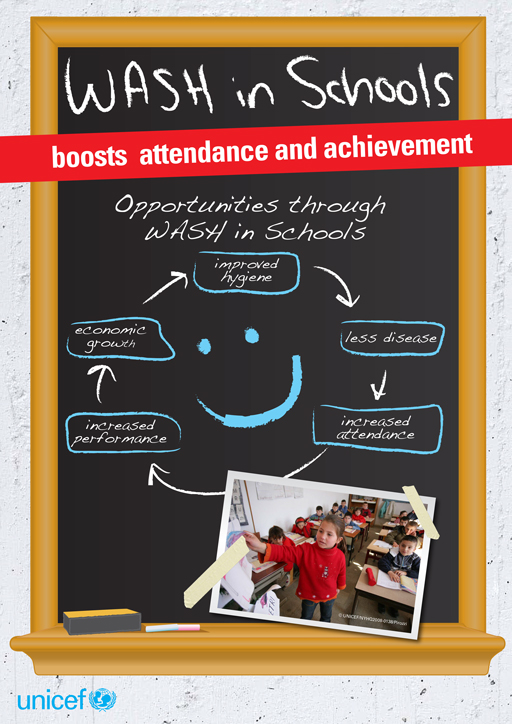6.5 Institutional WASH
Public institutions can include schools, colleges, health facilities, prisons, administration offices and other public buildings. In the OWNP, institutional WASH deals only with schools and health facilities because these have priority, based on the comparative benefits from WASH interventions. In Study Session 1, you read of the importance of WASH in schools.
What are the main benefits of good WASH facilities in schools?
They will improve children’s health which will result in better school attendance and consequently, better educational achievement. Schools with child-friendly services and separate facilities for boys and girls, will make school more appealing to children, especially girls, and also parents.
Improving school WASH services also has the potential to use students as change agents. (A change agent, or agent for change, is someone or something that helps to make changes happen.) The students will take their knowledge and experience home to their own families and reach other families, which will facilitate the community-level WASH promotion efforts at large.
Focusing on healthcare facilities also brings significant benefits. Reliable WASH services at health posts, centres and hospitals will prevent, or at least minimise, infections and ensure the recovery of patients. They provide a good model for people visiting the health facility that will help convince them to have WASH facilities at their home and also to use and maintain the facilities properly.
In schools and health facilities, it is always necessary to make sure that all the three sub-components of WASH – water supply, latrines and handwashing facilities, are available all together, as illustrated in Figure 6.8.

According to the National WASH Inventory (introduced in Study Session 3), safe water supply for primary schools stands at 31%, while sanitation coverage is 33% in an estimated 27,000 primary schools across Ethiopia. In the country’s 3,200 health facilities, only 32% have safe water. Fortunately however, the commitment of the Ethiopian government to improve WASH services in schools and healthcare facilities is encouraging.
6.4 Urban WASH
